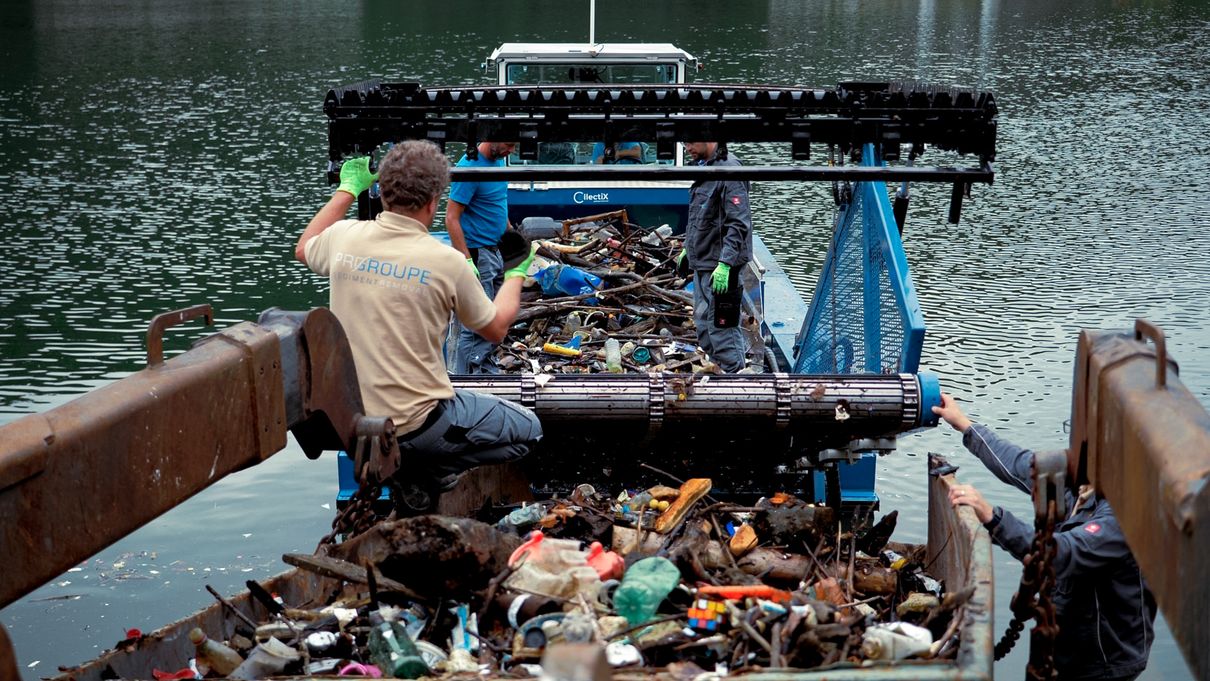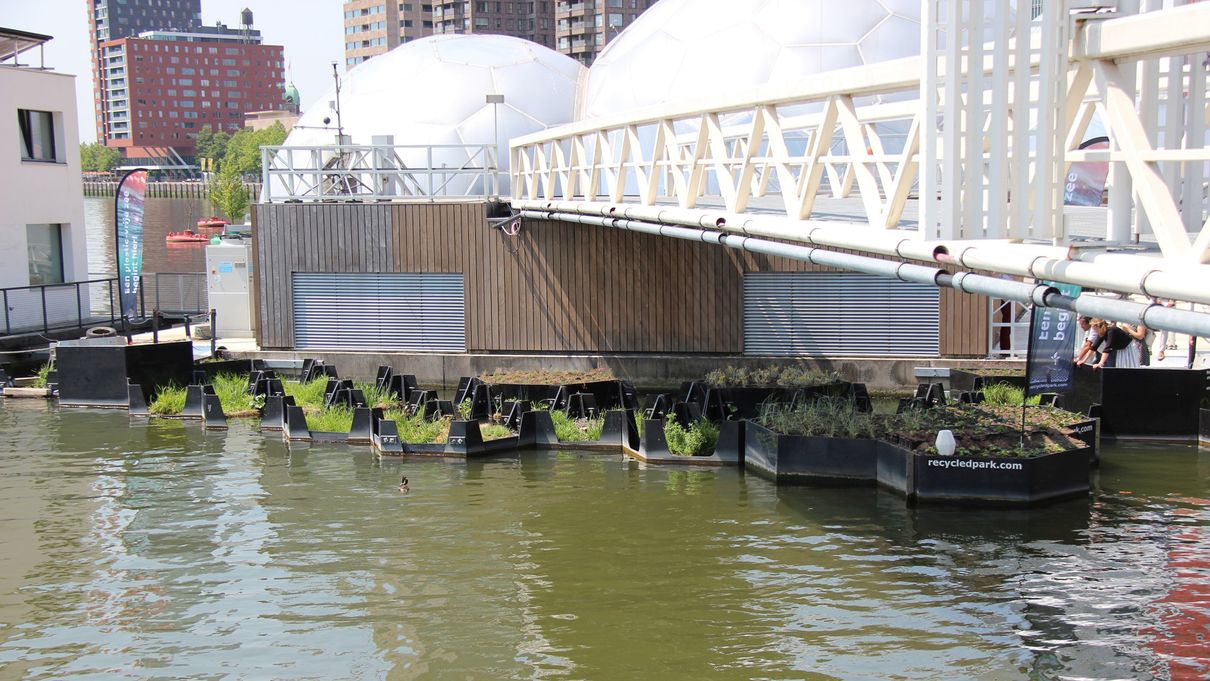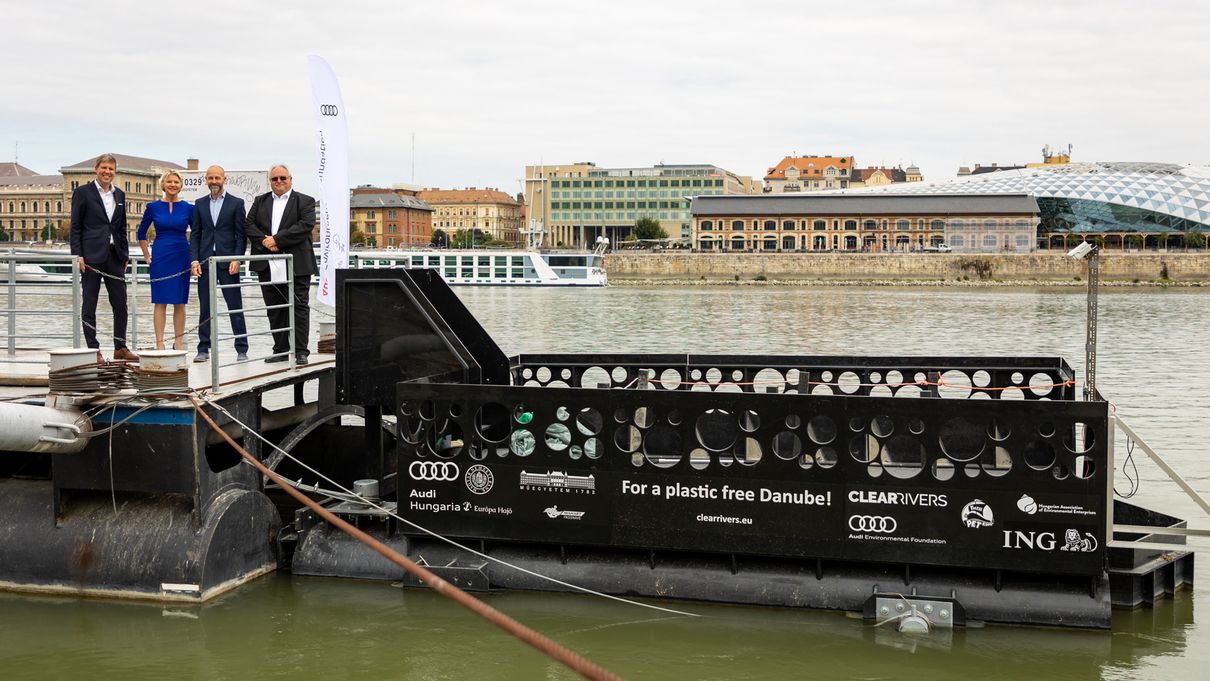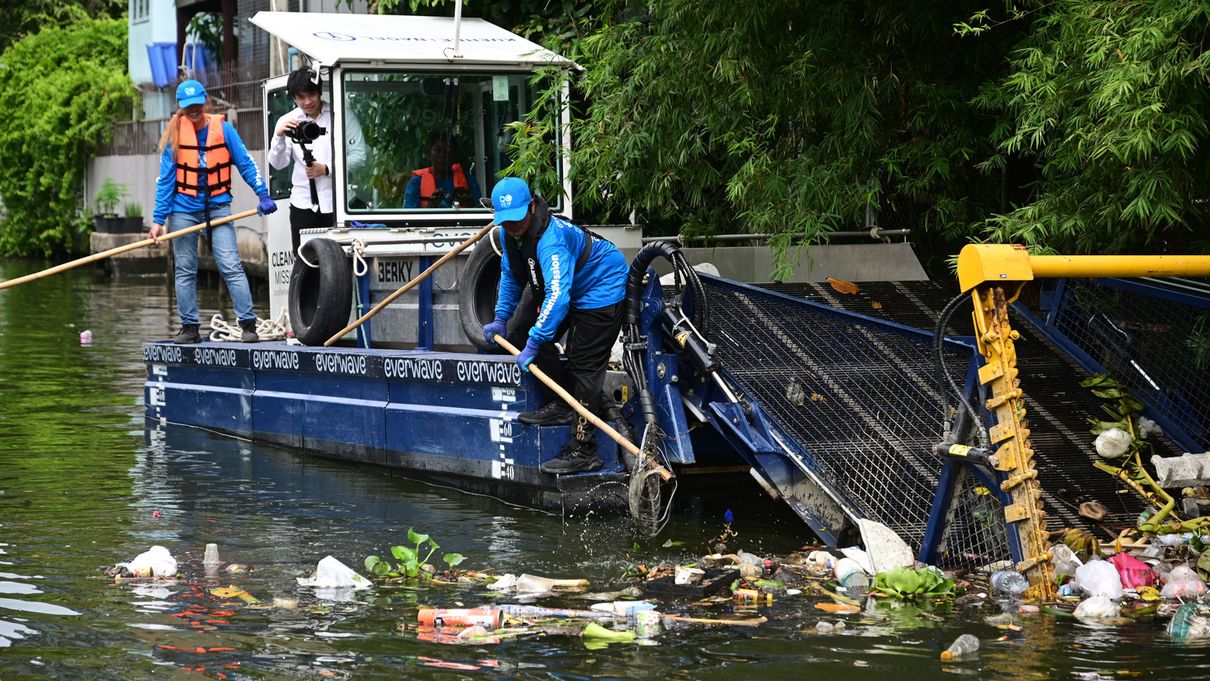Audi Environmental Foundation is committed to clean waters

Just like lakes and oceans, rivers are a habitat to many plants and animals and help preserve our globe’s biological diversity. This makes it crucial to balance the protection and use of our waters as far as possible.
The Audi Environmental Foundation is taking up the question as to what companies and society can do to help protect the environment at large and water in particular. Since 2009, the foundation has been promoting innovative projects that advance environmental protection.
In our age, it should be obvious why this is necessary: every year, some ten million tons of plastic waste flood the world’s oceans, costing countless thousands of marine animals their lives. The main inlet source are rivers that carry plastic waste into the ocean. Specially equipped ships are only able to retrieve one percent of this global pollution after the fact. This is why the Audi Environmental Foundation supports projects to stop pollution before plastics reach the ocean at all. “Water is the foundation of all life and unequivocally worth protecting. Clean waters, oceans, and rivers must be our common priority,” emphasizes Rüdiger Recknagel, Managing Director of the Audi Environmental Foundation.

Litter traps and floating parks against plastic waste
In 2018, the Audi Environmental Foundation launched its first cooperation with the non-profit start-up Clear Rivers from Rotterdam. The cooperation focuses on collecting waste from flowing waters as well as raising awareness for environmental damage caused by carelessly discarded litter.
Clear Rivers has developed so-called litter traps which are constructed so that litter riding a current is swept into a net where a retention device prevents it from washing further out. These clever devices prevent plastics from reaching the open sea. Fish and other aquatic life, on the other hand, can dive below the net, so they are not caught. The litter traps are emptied twice a week. Each litter trap prevents an average of one to three cubic meters of waste from reaching the open sea every month.
The first innovative litter trap was set up in the Rotterdam harbor in July 2018. In 2019, additional litter traps were installed in the Brussels-Charleroi Canal and beyond the borders of Europe on the Indonesian island of Ambon. In September 2021, another litter trap was put into service on the Danube in Budapest. “We are also looking at other rivers for suitable sites. It is important, for example, that our litter traps are set up at a strategic location where they do not impede shipping traffic while simultaneously maximizing their litter yield,” says Ramon Knoester, Founder of Clear Rivers.
The collected litter is recycled by the Audi Environmental Foundation and Clear Rivers to smart ends. Various technologies – including pressing, welding, and 3D printing – are employed to turn the recycled plastic waste into floating parks. These consist of several hexagonal islands, each five square meters in size and connected to each other. Some will feature benches made of recycled plastic, while others will be planted with moss, shrubs or even trees.
The islands will serve visitors to the harbor as well as residents as recreational areas, but above all will be a refuge for animal life. The individual island components are of various heights and feature an open substructure to allow small residents of the river to swim in and out easily, for example to spawn in the protection of the park’s subaquatic root system.

Long-lasting cooperation with the CollectiX collection boat
In 2021, the Audi Environmental Foundation paired up with the green start-up everwave and cosmetics manufacturer BABOR. Together they launched an initiative to counter the pollution of our flowing waters. The initiative organizes several open events throughout each year, including information events, activities at the partners’ locations, and cleanups.
Danube cleanup mission started
The kickoff event in April 2021 was one of the highlights: a ten-day cleanup on everwave’s garbage collection boat CollectiX to collect trash from the Danube. In this short period alone, some 3,200 kilograms of pure plastic were pulled out of the river – that is equal to 110,340 1.5-liter PET bottles. In addition, other types of trash were fished out of the river – from glass bottles to tires and steel drums to insulation materials and beverage cans.
“We can only solve the global problem of plastic pollution together. In this context, partnerships play a crucial role,” says Clemens Feigl, CEO of everwave, about the company’s collaboration with the Audi Environmental Foundation and BABOR. “We are all active in different industries and can therefore contribute different kinds of expertise to this joint initiative,” adds Rüdiger Recknagel. “In addition to collecting trash, we want to raise public awareness about the major problem of water pollution, reach as many people as possible and get them excited about protecting the environment.”

No one-day wonder: high-tech garbage collection boat in Bangkok
Since May 2023, everwave and Audi have also been active in Thailand together with the Ferry Porsche Foundation: since then, a high-tech garbage collection boat has been removing waste from the Chao Phraya river in Bangkok. Up to the end of November, over 67,000 kilograms of garbage had already been retrieved from the Thai canals. The long-term initiative’s goal: together with the local non-governmental organization (NGO) TerraCycle Thai Foundation, the project partners want to establish a stable infrastructure for waste processing in the region around Bangkok in the medium term.
Cooperation with local partners is important as this ensures a sustainable impact in the region. For example, two Thai boat operators have been hired to work on the Collectix boat, and two others are currently being trained. For the local NGOs, collaboration with their German project partners means a quantum leap. Before the boat was in the water, members of the TerraCycle Thai Foundation pulled garbage from the river by hand or with fishing nets.
“With the help of technical solutions, so-called Greenovation, we can be faster and more efficient today than we thought possible years ago,” says Rüdiger Recknagel from the Audi Environmental Foundation. “With the current project in Thailand, we’re pursuing two goals: we want to remove garbage from the water with the help of the high-tech boat and, in this way, raise awareness of ecological responsibility among the population.”

.jpg?imwidth=706&imdensity=1)

